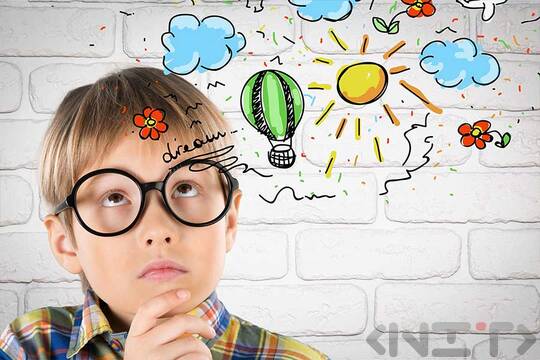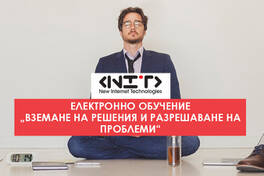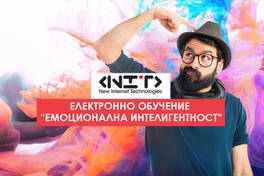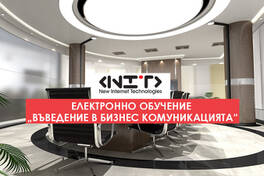
The ability to think critically is becoming increasingly essential. As Albert Einstein said, "Thinking is more important than knowledge, because knowledge has limitations and thinking has none."
Critical thinking is the ability to look at information objectively, analyze different aspects of a problem, and reach conclusions based on logic and objectivity.
In this article, we will look at the importance of critical thinking, how we can develop it, and how this skill helps us in different areas of life.
Understanding the concept and definitions of critical thinking is essential as this will clarify what this skill actually is and how it is used in practical situations.
Critical thinking is a process in which we analyze information with awareness and a critical attitude, examine it from different perspectives, and draw objective conclusions. This involves reasoning, logical analysis and objectivity, which helps us to make the most effective use of our brain resources.
Importance of critical thinking
Critical thinking is a key component of the successful functioning of society. It enables people to understand complex situations, make informed choices and deal with challenges effectively.
When we develop critical thinking, we:
Better understand information: Critical thinking helps us analyze and evaluate information we receive from a variety of sources. In this way we can understand the true value of the facts and arguments that are presented to us.
We make more reasoned decisions: With critical thinking we can avoid sudden or rash decisions and choose more reasoned and rational approaches to decision making.
Develop analytical skills: When we practice critical thinking, we improve our analytical skills. This leads to a better ability to look at problems from different perspectives and find innovative solutions.
We become aware of and prevent errors: critical thinking allows us to be more aware of possible errors and gaps in our responses. This improves our ability to prevent mistakes and correct ourselves when necessary.
Stimulate innovation: When we think critically, we are encouraged to challenge the status quo and find new ways to solve problems. This is especially important for scientific and technological advances.
Examples of critical thinking in action:
Critical Thinking in the Media: When we watch a news report or read an article on the Internet, we should question the source of the information and check the facts before assuming it is true. For example, if we come across an article claiming that a certain drug is dangerous, we should look for other sources to confirm or refute that information before forming an opinion about it.
Critical thinking in education: In school and university, critical thinking is particularly important. Pupils and students need to be able to analyse and understand information from learning materials and lectures, ask questions and discuss actively to achieve a better learning outcome.
Critical Thinking in the workplace: In the professional field, critical thinking helps employees solve complex problems and achieve innovative solutions for their company. For example, a team of engineers can use their critical thinking to design a new and more efficient product or service.
Critical Thinking in Personal Life: Critical thinking is also beneficial in our personal lives. When we make important life decisions, such as choosing a partner, financial investments, or a place to live, we need to analyze the possibilities and consequences.
Regarding the importance of critical thinking for personal success, we can see that this skill helps us make better decisions and develop analytical skills that are particularly important for our behaviour and success in our personal lives.
Example: imagine you have to choose between two job offers. Critical thinking will allow you to analyze the advantages and disadvantages of each, understand how they meet your goals, and make a reasoned choice.
Regarding professional success, critical thinking is a key skill in today's world where the ability to analyze information, solve complex problems, and take reasoned action is required.
Example: In the business environment, critical thinking helps us understand the competitive landscape, analyze production and sales data, and anticipate market trends. This gives us a competitive edge and helps us achieve success in the business domain.
Critical thinking is also linked to the intelligence that each of us brings.
How to develop critical thinking
Critical thinking is not something we are born with, it is a skill we can develop throughout our lives.
Here are some actions we can take to develop our critical thinking:
Questioning: Always ask questions when confronted with new information or a problem. Ask yourself what you know about the situation, what you want to learn more about, and what the possible solutions are.
Research different perspectives: Seek out different sources of information and analyse different perspectives on an issue. Do not be satisfied with the initial information you have received.
Evaluate the evidence: Check the evidence and arguments that support a particular claim. Carefully examine their sources and consistency with scientific facts.
Practice logic: Practice the logical steps in analyzing problems and finding solutions. Train yourself to draw conclusions based on facts and logic, not emotions.
Learning from mistakes: Don't be afraid to admit your mistakes and correct yourself. Acknowledging mistakes and learning from them is an important part of the process of developing critical thinking.
Practicing debate: Participating in debates or discussions with others develops our ability to listen to and analyze different opinions. This encourages critical thinking by requiring us to find arguments and facts to support our positions.
Problem solving through real situations: Put yourself in real situations and challenges that require solutions. For example, how would you respond to a conflict situation at work or how would you handle a complex ethical dilemma.
Reading and researching a variety of topics: By reading a variety of books, articles, and research, we broaden our overview and learn to consider issues from different perspectives.
Using mind maps: Creating mind maps is an excellent way to visualize and organize information. This helps us to bring facts and ideas together and create a clearer picture of issues.
Critical thinking training and courses: Many educational institutions and online platforms have courses available that focus on developing critical thinking. Taking part in these trainings can be useful and inspiring.
With the variety of approaches and practices we have discussed, we can develop our critical thinking and apply it to every aspect of our lives. Achieving critical thinking helps us become better information analysts and creative thinkers. By doing so, we will have greater success and be able to contribute to improving the world around us.
The role of technology in critical thinking
The role of technology in critical thinking is twofold. On the one hand, digital tools provide quick access to information, which can stimulate critical thinking by analysing and comparing different sources. On the other hand, over-reliance on technology can limit critical thinking, especially when users accept information without critical evaluation or place too much trust in algorithms to judge credibility. Developing digital literacy skills is key to maintaining a balance between technological advantage and critical thinking.
Thought experiments and critical thinking
Einstein's light ray thought experiment is one of the most famous examples of the way he developed his theories. This particular thought experiment played a key role in the development of special relativity.
The experiment begins by presenting the following situation: Einstein imagines that he is travelling along with a beam of light at the speed of light. He asks himself what he would see if he looked at the light beam. In traditional physics before Einstein, if you are moving at the speed of an object, that object should appear to be stationary relative to you. But light always travels at the same speed, regardless of the observer's speed. This contradiction made Einstein realize that traditional notions of time and space were inadequate and led to the development of special relativity.
Special relativity radically changed physics' understanding of time, space, and velocity, showing that time stretches (or slows down) and distances shrink when objects move at speeds close to the speed of light.
This thought experiment is a great example of the way physicists use their imaginations to expand our understanding of the universe, and is an important tool for training critical thinking, especially in physics and the philosophy of science.
Parfit's Teletransporter Problem is another suitable thought experiment for training critical thinking. This experiment challenges thinking about questions of identity, consciousness, and continued existence after change.
In the experiment, imagine a teleportation machine that scans your body and consciousness, destroys your original body, and creates an exact copy elsewhere. The question is: After the teleportation, is the person who appears in the new place the same as the one who was scanned and destroyed? This experiment can be used to discuss concepts such as continuity of consciousness, physical and psychological identity, and the impact of technology on our understanding of identity.
This thought experiment is suitable for stimulating deep thinking and analysis of complex issues that are important for the development of critical thinking.
Sources:
- Glendale Community College (Thought Experiments and Philosophical Problems)
- Stanford Encyclopedia of Philosophy (Thought Experiments)
Here are some recommended books that address the problem of critical thinking:
"Thinking, Fast and Slow by Daniel Kahneman: This book explores the two main ways our brains work, fast and slow thinking, and how these processes influence our decisions and decision making.
"The Demon-Haunted World: Science as a Candle in the Dark by Carl Sagan: Carl Sagan lays out the importance of science and critical thinking in the fight against primitivism and deception.
"Critical Thinking: Tools for Taking Charge of Your Learning and Your Life by Richard Paul and Linda Elder: This book offers specific techniques and tools for developing critical thinking and applying it to a variety of situations.
"Predictably Irrational: The Hidden Forces That Shape Our Decisions by Dan Ariely: This book explores behavioral economics and reveals how and why people make irrational decisions.
"Nudge: Improving Decisions About Health, Wealth, and Happiness by Richard Thaler and Cass Sunstein: This book explores the concept of nudging and how gentle nudges can influence our decisions.
"Super Thinking: The Big Book of Mental Models" by Gabriel Weissman and Shane Parrish: This book presents over 300 mental models that help us think critically and solve problems more effectively.
These books present different approaches and perspectives to critical thinking and can be used to further develop the skill and strengthen our analytical abilities.
Conclusion
Critical thinking is a key competency for us to successfully deal with the challenges of today's world. It allows us to view information objectively, make informed decisions, and discover new solutions to the problems before us. The process of developing critical thinking is continuous and leads to a better understanding of the world around us and achieving success in different areas of life. Let us strive to become better critical thinkers by practicing our skill in every aspect of life.
See what trainings we offer and what competencies you can develop for the challenges of the new times we live in.
See what training we offer and what competences you can develop for the challenges of the new times we live in.







